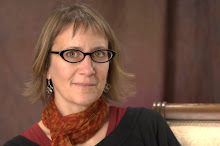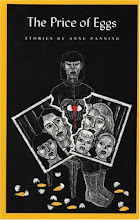
It’s different out here—quieter. I don’t know what my friends are doing, what movies they’re watching, what’s irritating them or delighting them, what their children are doing or saying. Even contact with my only belovéd sister has been reduced by at least 80% now that I’m off the planet. That’s a loss I mourn.
But the quiet out here can be peaceful. And when you suffer from depression, and therefore suffer a lack of perspective or balance, ignorance can be beneficial. It’s a self-protective measure really, this not knowing. It’s not noble. It’s not altruistic. It’s actually a bit lonely, though necessary, too, for a safe heart.
I went on a silent retreat for four days in March: no Internet, no TV, no television, no phone. The first day, after I was shown to my tiny room with bed, desk, window, chair, I sat and looked out at the trees: what now? My fingers fidgeted. My head spun, concocting lists of all that I wanted to “get done.” But to-do lists and silent retreats don’t mix well. I read randomly from the books provided in my room. I read St. Augustine’s Confessions and was surprised by his struggles with lust. I wrote a short essay about grief called “Dr. Blue.” I walked in the woods at night and encountered a silvery deer drinking from a pond. It looked up at me, and I at it, and we stayed that way for a very long time.
The caretaker sounded a gong for mealtimes. The food was served in a dim room with a trickling fountain in the corner. We spoke while eating, but kept the greater world at bay. The Japanese earthquake and tsunami had just hit, and I’d been left wondering how people were faring. But it was not discussed.
Back home, the world had continued on without me. Stresses and triggers arose at every turn, and when migraines came knocking, I knocked them out with medicine that made my tongue thick and my forehead heavy. I removed Facebook from my toolbar, just to see.
I’m floating out here in the dark. I’m waving. Worrying. Wondering.


.jpg)